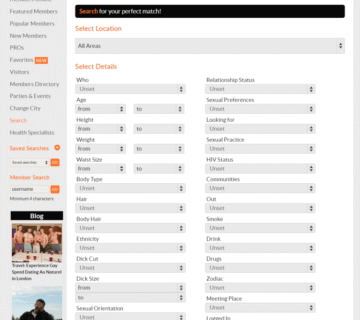Online dating has become a popular and convenient way to meet new people, build connections, and find potential partners. However, as the digital dating world grows, so do the risks of encountering scams and fraudulent profiles. Romance scams and fake dating profiles have increased dramatically in 2025, amplified by advanced technologies like AI-generated images and deepfake videos. Protecting yourself requires awareness, cautious behavior, and knowing the warning signs of scammers.
This comprehensive guide explains how to identify and avoid online dating scams in 2025, helping you navigate digital romance safely while maximizing your chances of genuine connections.
What Are Online Dating Scams?
Online dating scams, also known as romance scams, occur when criminals create fake profiles or personas on dating apps and websites to gain trust and affection. Their ultimate goal is financial gain, leveraging emotional manipulation to convince victims to send money or share sensitive information.
These scammers use tactics such as “love bombing” — overwhelming you with affection early on — and inventing emergencies to encourage quick financial help. Increasingly, sophisticated AI technology is used to generate realistic photos, voice notes, and even video calls, making scams harder to detect.
Common Types of Online Dating Scams in 2025
-
Catfishing: Creating fake profiles using stolen images and fabricated backstories to lure victims.
-
Financial Requests: Asking for money for medical emergencies, travel expenses, or investment opportunities.
-
Sextortion: Recording intimate video calls and threatening to release them unless paid.
-
Fake Profiles Linking Off-App: Trying to move conversations to WhatsApp, Telegram, or email to avoid platform detection.
-
Honey-Trap Scams: Using emotional pressure and fabricated scenarios to isolate victims from friends and family.
Warning Signs of a Scam Profile
Be alert to these common red flags indicating a potential scammer:
-
Too Good to Be True: Profiles with extremely attractive photos or extravagant life stories should raise suspicion.
-
Avoids Meeting or Video Calls: Scam profiles often avoid in-person meetings or real-time video chats.
-
Rushed Intimacy: Expressing “love” or deep feelings very early in conversations.
-
Inconsistent Information: Details such as age, location, and occupation don’t match or frequently change.
-
Requests for Money or Personal Info: Asking for financial help, bank details, or sensitive documents.
-
Pressure to Communicate Off Platform: Insisting on moving conversations away from the dating app for privacy.
How to Safely Navigate Online Dating in 2025
1. Protect Your Personal Information
Avoid sharing sensitive details such as your full name, address, workplace, or financial information early in conversations. Even seemingly harmless trivia can be pieced together for identity theft or fraud. Use a username that doesn’t reveal location or real name.
2. Verify Photos and Profiles
Use reverse image search tools like Google Images to check if profile photos appear elsewhere on the web, indicating they may be stolen. Cross-check information on social media or professional networks for consistency.
3. Take Your Time
Don’t rush into emotional or financial commitments. Genuine relationships develop over time. Be skeptical of anyone pushing for quick attachments or asking to move off the app immediately.
4. Use Video Calls
A video chat confirms authenticity and builds face-to-face trust. If your match refuses or repeatedly cancels video calls, it may be a red flag.
5. Keep Communications on the Dating Platform Initially
Avoid moving conversations to personal messaging apps too soon. Dating platforms provide some security and reporting mechanisms.
6. Report Suspicious Behavior
Make use of in-app reporting tools to flag fake profiles or inappropriate behavior. This helps protect yourself and others.
7. Trust Your Instincts
If something feels off or too good to be true, listen to your gut. Discuss concerns with trusted friends or family before proceeding.
Advanced Scams and AI Weaponization in 2025
The rise of generative AI has introduced new threats, such as:
-
Deepfake Videos: Scammers can fake live video calls or impersonate others convincingly.
-
AI-Generated Voice Notes: Technology can mimic voices to manipulate emotionally.
-
Automated Fake Accounts: Bots flooding platforms with fake profiles pretending to be real people.
Remaining vigilant, using AI detection tools, and maintaining cautious communication habits are more essential than ever.
What To Do If You Suspect You’re Being Scammed
-
Cease communication immediately.
-
Do not send money or share further information.
-
Report the profile to the dating site or app.
-
Inform your bank and monitor accounts if financial details were shared.
-
Contact local authorities if you feel threatened or extorted.
-
Reach out to support groups or counseling if emotionally affected.
Expert Resource for Online Dating Safety
For comprehensive tips on staying safe and protecting yourself from romance scams, the Federal Trade Commission (FTC) offers an authoritative guide packed with actionable advice:
FTC’s Guide on Avoiding Romance Scams
Read More: 15 Romantic Date Night Ideas to Rekindle Your Relationship
Conclusion
Online dating remains a wonderful way to meet new people but carries inherent risks of scams and deceit, especially in 2025’s fast-evolving technological landscape. Protecting your heart and wallet requires awareness of common scam tactics, cautious sharing practices, and trusting your instincts.
By verifying profiles, maintaining open communication on trusted platforms, and educating yourself on red flags, you can enjoy the rich possibilities of digital romance safely. Remember, true connections build gradually and authentically—when in doubt, prioritize your safety above all.








[…] Read More: How to Avoid Online Dating Scams in 2025: Protecting Your Heart and Wallet […]